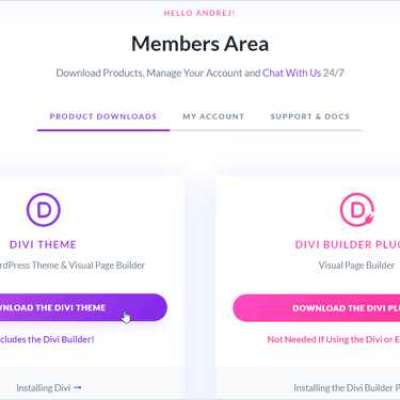The Functions of a Website for a Modern Company
In the landscape of today’s digital economy, a company’s website is no longer a luxury—it is a critical business asset that plays a fundamental role in shaping competitiveness, communication, customer experience, and brand reputation. Beyond serving as an online brochure, a well-developed corporate website functions as an integrated platform that supports various facets of business operations and strategic growth.
This article explores, in detail, the core functions of a website for a company, highlighting how it contributes to sustainable business development in the digital age.
1. Corporate Identity and Brand Representation
One of the primary functions of a website is to act as the official digital representation of the company. It serves as the first point of contact for many stakeholders—clients, partners, investors, and even future employees. A professionally designed website reinforces the company’s brand identity, conveys its mission and vision, and creates a lasting impression of credibility and competence.
Through consistent use of logos, typography, color schemes, and tone of voice, the website becomes a centralized platform to communicate the brand’s character and values effectively.
2. A Reliable Source of Official Information
A website provides stakeholders with direct access to accurate, timely, and consistent information. From corporate profiles and product catalogs to investor updates and press releases, the website serves as the authoritative channel through which information is disseminated. This mitigates the risk of misinformation and establishes the company as a transparent and trustworthy entity.
3. Marketing and Lead Generation Tool
Modern websites are built with integrated marketing capabilities that allow companies to attract, engage, and convert potential customers. By employing tools such as search engine optimization (SEO), content marketing, lead capture forms, and landing pages, a website becomes an always-on marketing engine.
Furthermore, integration with marketing automation platforms and social media channels enables businesses to run targeted campaigns, track performance metrics, and nurture leads throughout the sales funnel.
Reference:
4. Customer Engagement and Support Platform
A well-functioning corporate website includes features that facilitate two-way interaction with customers. Live chat, AI-powered chatbots, contact forms, support ticketing systems, and feedback modules enable companies to respond to inquiries, solve problems, and understand customer needs in real-time.
This ongoing engagement fosters trust, increases customer satisfaction, and encourages repeat business—key elements in building long-term relationships.
5. Enabler of Global Reach and Accessibility
Unlike physical branches or offices, a website breaks geographical limitations and allows a company to be discovered and engaged from anywhere in the world. By offering multilingual content, location-independent services, and international payment integration, companies can extend their reach into new markets with significantly lower entry barriers.
For businesses with global ambitions, the website becomes an essential vehicle for market penetration and brand expansion.
6. Business Process Integration and Automation
Websites can also be equipped to support various operational functions. From online order processing and appointment scheduling to inventory management and internal data collection, a company’s website can automate repetitive tasks and streamline workflows.
By reducing manual intervention, companies can improve accuracy, reduce operational costs, and allocate resources more effectively.
7. Strategic Data and Analytics Collection
Every visit to a website generates valuable behavioral data that can inform business decisions. Tools such as Google Analytics, heatmaps, and CRM integrations allow companies to gain insights into user demographics, browsing patterns, conversion paths, and content effectiveness.
These insights are instrumental in optimizing marketing strategies, improving user experience, and identifying new business opportunities based on real-time data.
8. Platform for Corporate Responsibility and ESG Communication
In an era where environmental, social, and governance (ESG) practices play a significant role in public perception and investment decisions, websites offer a dedicated platform to communicate a company’s values and initiatives. CSR reports, sustainability updates, and community engagement programs can all be showcased on the website to foster transparency and goodwill.
This contributes to building a responsible image and meeting the growing expectations of ethical conduct from customers, partners, and regulators.
9. Competitive Differentiation
In industries where products and pricing are increasingly commoditized, a professional and functional website can be a critical differentiator. It can elevate the company’s perceived value, communicate unique selling propositions (USPs), and demonstrate innovation and reliability.
A strategically designed website also allows a company to respond quickly to market shifts, launch new services, and keep its messaging aligned with customer demands.
A company’s website is far more than an online storefront—it is a versatile and indispensable platform that supports branding, communication, marketing, customer service, operations, and strategic decision-making. In an increasingly digital world, a robust website is not just beneficial; it is vital for long-term success.
Companies that invest in building and continuously optimizing their website will not only strengthen their market presence but also unlock new opportunities for innovation, growth, and sustainability.
source: http://buatwebmurah.com and http://situseo.com
پسندیدن
اظهار نظر
اشتراک گذاری
















